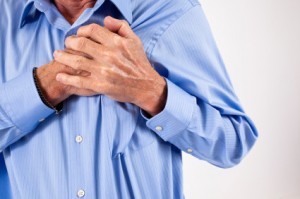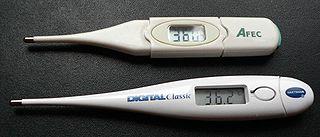Holiday Medical Hazards and Illnesses, Types and Causes
The holiday season may be a time of fun and festivity but there are several medical concerns for health authorities during this period. Some are obvious issues like injuries due to road traffic accidents but others may depend on factors that are not always under a person’s control. Understanding some of these medical hazards and illnesses can be helpful in preventing it. Ultimately it can make the difference between a fun-filled holiday or sitting in the emergency room while the festivities go on without you.
Reasons for Holiday Medical Problems
There are a number of reasons why the risk of certain medical conditions increases during the holidays. These include:
- Excessive alcohol consumption and illicit drug abuse
- Fatigue and insufficient sleep
- Psychological stress – financial, emotional and other
- Alterations in dietary habits
- Missing prescription medication
- Overexertion – physical strain
- Driving under the influence and holiday traffic issues
- Local or international travel
While many of these factors can occur at any time of the year, it is more likely to occur during the holiday seasons irrespective of the time of the year. However, there are certain factors that are seasonally dependent such as:
- Outbreaks of infectious diseases
- Very high or low environmental temperatures
- Changes in hours of daylight
- Water-related activities that are more common during hot weather
- Increased exposure to venomous animals and toxin or infection-carrying insects during certain seasons
Some of the more likely medical conditions that can arise during the holiday period has been discussed below. As previously mentioned, road traffic accidents, sporting and other injuries, animal bites and insect stings may also increase during the holiday period but have not been discussed in further detail.
Heart Conditions
There may be an increased risk of several heart-related medical emergencies and even fatalities around the holiday season. This may include worsening of heart failure, heart attack (myocardial infarction) and irregular heart rhythm (arrhythmia). The latter that is linked to holiday-related behavior is often termed as holiday heart syndrome. For many of the same reasons, there may be an increased risk of a stroke which is related cardiovascular condition that can occur even if the heart is healthy. These conditions are more likely to occur during the holidays in people with pre-existing cardiovascular diseases.
Diarrheal Illnesses
Another common seasonal condition is diarrheal illnesses and mainly gastroenteritis. While gastroenteritis may occur due to a range of causes, the most common are infections and specifically viral infections. Viral gastroenteritis often occurs as outbreaks and may be seasonally related.Most of the time we refer to it as the stomach flu and in some countries seasonal outbreaks may be known by other names like the winter vomiting bug.
Other infectious causes like bacterial gastroenteritis or food poisoning are more likely to occur in summer when food becomes easily contaminated and spoiled with the heat. Travelers are also at risk if visiting countries where the hygiene standards are not satisfactory. Viruses, bacteria and parasites are easily contracted by travelers through consuming contaminated food and water. This is often referred to as traveler’s diarrhea.
Reflux, Gastritis and PUD
Acid reflux, gastritis and peptic ulcer disease (PUD) are three upper gastrointestinal conditions that tends to occur and flare up during the holidays. It is often related to alcohol consumption and dietary habits that may change during the holiday period. Acid reflux or gastroesophageal reflux disease (GERD) is common and presents with heartburn that may be mistaken for a cardiac problem. Gastritis is inflammation of the stomach while peptic ulcer disease (PUD) is where open sores form in the wall of the stomach or duodenum.
Pancreas Problems
Pancreatitis is the medical term for an inflamed pancreas. It can be acute or chronic. Acute pancreatitis is where the pancreas suddenly becomes inflamed due to injury by the strong digestive enzymes produced within the pancreas. While there can be many causes, alcohol abuse is one of the known factors to lead to acute pancreatitis. In the long term it can also contribute to chronic pancreatitis which is marked by frequent episodes of pancreas inflammation. Abdominal injuries with to assaults and road traffic accidents, which are more likely to occur during the holidays, can also cause pancreatitis.
Hyper- and Hypothermia
A very high or very low body temperature may occur at anytime of the year for various reasons but these temperature-related illnesses are more likely to occur during the holidays. To some degree holiday behavior may contribute to it but often it is a result of seasonal factors.
Hyperthermia is where the body temperature exceeds the normal range. Heat-related illnesses are often seen in summer especially where there is inadequate cooling and rehydration. Hypothermia is where the body temperature reaches very low levels. It is more likely to occur in winter with inadequate heating or insulation from the cold.
Dehydration
Excessive loss of fluid that cannot be compensated with fluid intake can lead to dehydration. The loss of the fluid along with vital electrolytes affects multiple organs and systems in the body. This may be seen with excessive alcohol consumption, strenuous physical activity, very hot weather, diarrhea and vomiting which may all increase during the holidays. Depending on the severity of the dehydration it can be life-threatening. In most cases dehydration can be prevented and even be treated at home with oral rehydrating solutions (ORS).
Drug Overdose and Alcohol Poisoning
Substance abuse often rises during the holiday periods for various reasons. Depending on the extent of the abuse it can lead to overdose and poisoning. It can occur with illicit drugs, prescription medication and alcohol. Drug overdose and alcohol poisoning can occur at any time of the year but it often increases during the holidays due to the festivities as well as psychological stresses such as family problems and financial issues that tend to increase during the holiday season. Sometimes these acts are intentional and intended to result in death such as in suicides.
Colds and Flu
The common cold and seasonal flu are more likely to occur during certain times of the year, often during or close to the winter months. These viral infections are very contagious and easily spread within the home, workplace and even community. The reason for the rapid spread may not always be related to holiday activities. With global travel patterns, less common strains of these viral infections or related viruses may also be easily transmitted. Travelers are therefore more at risk especially during the seasonal outbreaks in the country that they are visiting. Refer to types of influenza.








